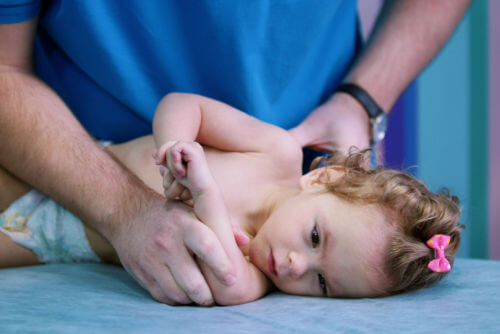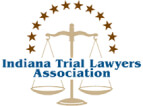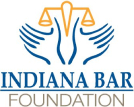
Nothing can be worse than learning your child has a serious and life-altering medical condition such as cerebral palsy. This condition can occur when there is damage to the nervous system and the brain during early fetal development in the womb. It can also occur during labor and delivery.
Sadly, medical malpractice often serves as the underlying reason for a child’s cerebral palsy. Physicians and other healthcare providers may fail to meet the minimum standard of care during prenatal or postnatal care, or they may mishandle complications during labor and delivery, which may result in this significant injury.
At the Law Offices of Kelley J. Johnson, we understand what it takes to win these complex cases. Our goal is to help you seek compensation so that your family has the accountability you deserve, and your child has the financial security they need to live a safe, secure, and fulfilling life. Let us handle all the legal work in your Indianapolis birth injury claim while you focus on other issues. Call us today or complete our contact form for a free consultation with our Indianapolis cerebral palsy team. We want to hear your family’s story.
How Our Indianapolis Birth Injury Attorney May Help If Your Child Has Cerebral Palsy
Our skilled cerebral palsy attorney has a thorough knowledge of the Indiana Medical Malpractice Act and how to obtain fair compensation through it. Here’s how we hold negligent medical professionals accountable in cerebral palsy lawsuits:
- Evaluating Your Case: We start with an open conversation about your child’s injury. We gather information from you and your family to understand the impact of your child’s illness on your lives. We review your medical records for signs of negligence during pregnancy, delivery, or postnatal care.
- Reviewing Medical Records: Our team collects all the relevant medical records for your case. With the help of nurse consultants, we analyze these records to uncover errors by your healthcare providers.
- Consulting with Medical Experts: If our initial review suggests medical negligence, we can consult with experienced obstetricians and other relevant experts. They help us determine if medical malpractice caused your child’s condition.
- Deciding to Move Forward: If we find grounds for a medical malpractice claim, we explain your legal options and the process ahead.
- Pursuing Your Claim: We can handle all the paperwork and file your claim with the Indiana Department of Insurance’s Division of Medical Malpractice. If the review panel supports your child’s birth injury claim, we can file a lawsuit to seek compensation for your family.
Our experienced cerebral palsy lawyer in Indianpolis can advocate for your family every step of the way. Contact us today for a free consultation to discuss your legal rights and options.
Why Choose Kelley J. Johnson
Kelley J. Johnson has nearly 20 years of litigation experience, much of it focusing on complex medical malpractice cases throughout Indiana. That knowledge and experience help us dig deep into these cases to identify who’s liable for your child’s condition and hold them accountable for their medical errors.
We take a personalized, compassionate approach to these cases and want to fully understand your unique needs and what we must do to hold the at-fault parties accountable for how they’ve hurt your family. Our goal is to get you the answers and compensation you deserve, and because we work on a contingency fee basis, you won’t pay us unless we’re successful.
What Is Cerebral Palsy?
Cerebral palsy describes a host of symptoms that result from brain damage caused by abnormal or stunted development of the brain. Often, cerebral palsy is accompanied by other health concerns like intellectual disabilities, seizures, and vision or hearing problems. Different types of cerebral palsy are:
- Spastic cerebral palsy – This form of cerebral palsy arises from damage to a specific area of the brain, which controls the transmission of nerve signals to muscles. A child with spastic cerebral palsy, or bilateral spasticity, cannot relax the muscles in their body. As a result, the child’s movements may appear to be stiff and erratic.
- Athetoid cerebral palsy – This type of cerebral palsy prevents a person from controlling tension in the muscles. A child with athetoid cerebral palsy, or dyskinetic cerebral palsy, may be unable to control their movements or posture and may suffer from involuntary movement of the legs and arms – especially during periods of stress or excitement.
- Ataxic cerebral palsy – This form of cerebral palsy arises from damage to structures within the brain that control balance and muscle movement. A child with ataxic cerebral palsy will likely have problems with balance, coordination, and depth perception.
- Mixed cerebral palsy – A child who suffers from a variety of symptoms may be diagnosed with “mixed” cerebral palsy. Many children’s conditions do not neatly fit into a specific category, so their condition may be classified as mixed cerebral palsy.
Cerebral palsy leads to life-long complications and the need for expensive medical care. Even though certain types of treatment and medical devices can help a person with cerebral palsy to function better, there is no known cure for the condition.
Signs of Cerebral Palsy
If your child suffered an injury in utero while their brain was still developing or your child sustained injury during delivery, the following signs and symptoms may indicate that your child has cerebral palsy:
- Difficulty walking
- Trouble keeping balance
- Trouble with controlling body movement
- Muscle rigidity
- Uncoordinated movement
- Muscle weakness
- Muscle spasms
- Paralysis
- Developmental problems
- Learning disabilities
- Impaired growth
- Speech delays
- Constipation
- Swallowing problems
- Drooling
- Hearing loss
- Physical deformity
- Teeth grinding
- Tremors
- Impaired fine motor skills and gross motor skills
- Limited or impaired oral motor functioning
- Poor posture
- Impaired reflexes
If complications arose during labor and delivery or while the mother was pregnant and you observe any of these symptoms in your child, you should immediately contact a medical specialist to have your child evaluated for cerebral palsy. If you have questions after medical professionals have evaluated your child, you should also contact an experienced cerebral palsy lawyer to determine if a medical error or malpractice caused the condition.
Causes of Cerebral Palsy
In many cases, a child’s cerebral palsy diagnosis can be traced to medical errors. These errors can occur in any of the following three stages:
Before Birth
If certain types of problems arise during a pregnancy and a doctor fails to diagnose and treat the problem, it can lead to cerebral palsy. Those problems include:
- Maternal infections (pelvic infections, chickenpox, rubella, Group B strep, cytomegalovirus, or bacterial infections in the placenta or fetal membranes)
- Rh incompatibility (when the mother’s immune system reacts negatively to the baby)
- Fetal infections
- Genetic abnormalities
- Fetal hypoxia (lack of oxygen to the developing fetus)
- Undiagnosed preeclampsia or eclamptic seizures
Good prenatal care is crucial throughout the pregnancy. A doctor should monitor ongoing development, fetal growth, and other factors. If a medical professional fails to identify key warning signs and take necessary steps to intervene, cerebral palsy may result from their negligence. Failing to make a proper diagnosis or catch clear signs of a developmental problem can be grounds for a medical malpractice case against a doctor or other healthcare provider.
During Labor and Delivery
Some children develop cerebral palsy due to actual injuries or problems that occur during labor and delivery or during a C-section. Examples include:
- Overuse of Pitocin to accelerate delivery
- Extended labor
- Ignored signs of fetal distress
- Shoulder dystocia (a baby gets stuck in the birthing canal and may lose oxygen, leading to brain injury)
- Physical trauma from vacuums and forceps
After Birth
Sadly, even a perfectly healthy child born without complications may develop cerebral palsy in the early stages following birth. Doctors must apply their training and skill to identify warning signs and take proper action when a child suffers from:
- Drowning, choking, and other causes of hypoxia (lack of oxygen)
- Lead poisoning
- Severe jaundice
- Toxic exposure to chemicals
- Trauma to the baby’s head
- Brain infections (meningitis)
Our experienced medical malpractice attorney regularly handles birth injury lawsuits, including cerebral palsy cases. If you suspect medical negligence played a part in your child’s injury, contact our law firm today for a free, no-obligation consultation.
When Medical Malpractice May Have Caused Cerebral Palsy
Doctors or other medical professionals involved in your pregnancy or labor may make mistakes during pregnancy, delivery, or postnatal care that can lead to cerebral palsy or other severe birth injuries. Here are some examples of medical negligence that can cause or contribute to cerebral palsy:
- Delayed Delivery: If a baby is in distress and doesn’t receive the care it needs during delivery, a resulting lack of oxygen to the baby’s brain. This can happen if the healthcare team doesn’t perform a C-section quickly enough when it’s needed.
- Improper Use of Delivery Tools: Doctors sometimes use forceps or vacuum extractors to help deliver a baby. If they use these tools incorrectly, they can cause injuries to the baby’s head and brain, potentially leading to cerebral palsy.
- Failure to Monitor: Doctors and nurses must carefully monitor both the mother and baby during labor. If they miss signs of distress, like abnormal heart rates, they might not take the necessary steps to protect the baby. This can result in brain damage and cerebral palsy.
- Infections: If not properly treated, infections in the mother can also affect the baby. Conditions like meningitis or encephalitis can damage a baby’s developing brain. Healthcare providers should recognize and treat infections promptly to prevent harm.
- Jaundice and Kernicterus: Severe jaundice can lead to a condition called kernicterus if not treated promptly. Kernicterus can cause brain damage and cerebral palsy. Proper treatment and monitoring of jaundice are essential to prevent this.
- Birth Injuries: Physical trauma during birth can also lead to cerebral palsy. Improper handling or delivery techniques can cause a baby to suffer a head or body injury, leading to long-term damage.
- Medication Errors: Giving the wrong medication or the wrong dose during pregnancy or delivery can harm a baby. Medication errors can lead to complications that might contribute to cerebral palsy.
Who Can Be Held Responsible
Depending on the unique facts of your case, several parties may be responsible for a child’s cerebral palsy diagnosis, including:
- Doctors
- Midwives
- Nurses and Nurse Practitioners
- Medical assistants
- Hospitals
- Birthing centers
- Physician groups
Compensation You Can Recover in a Birth Injury Lawsuit
Children with cerebral palsy often have many expensive needs, including long-term health care. A successful personal injury claim can provide financial support to help cover these costs. How much compensation you could recover depends on your situation, but it could include money for your:
- Medical Expenses: This includes past, present, and future medical bills. Children with cerebral palsy often require regular doctor visits, surgeries, and specialized medical equipment. Compensation from a cerebral palsy lawsuit can cover these medical expenses to ensure your child gets the care they need.
- Rehabilitation Costs: Many children with cerebral palsy benefit from ongoing rehabilitation services, such as physical, occupational, and speech therapy. These therapies can help improve their quality of life and increase their independence. The money from a birth injury lawsuit can cover these costs, making it easier to afford long-term rehabilitation.
- Assistive Devices: Children with cerebral palsy may need assistive devices like wheelchairs, communication boards, and other specialized equipment. These devices can be costly, but they are essential for helping your child navigate daily life. A successful claim can provide you with funds to purchase and maintain these devices.
- Home Modifications: To accommodate your child’s needs, you might need to make changes to your home, such as installing ramps, widening doorways, or adding accessible bathrooms. A birth injury lawsuit can help you recover compensation for these modification costs.
- Special Education Costs: Many children with cerebral palsy require special education services tailored to their unique learning needs. You may be able to recover compensation to help pay for private schooling, tutoring, and other educational resources by filing a birth injury claim.
- Loss of Future Earnings: If your child’s ability to work and earn a living in the future is impacted by their condition, you can pursue compensation for their lost earning potential.
- Pain and Suffering: Compensation for pain and suffering acknowledges the physical and emotional challenges your child faces daily. While no amount of money can truly compensate for these hardships, this financial support can help improve your child’s quality of life.
- Emotional Distress: Caring for a child with cerebral palsy can be emotionally challenging for the entire family. Compensation for emotional distress can help cover the costs of counseling and mental health services for you and your family.
Our experienced birth injury team will work tirelessly to recover maximum compensation for you and your family. We want to help ease the financial burden caused by medical negligence.
Contact Our Cerebral Palsy Lawyer in Indianapolis
At the Law Office of Kelley J. Johnson, we handle complex and challenging cases for the most deserving clients. If you and your family face the heartbreaking reality that your beloved child has suffered a birth injury or experienced a preventable complication due to medical malpractice that led to cerebral palsy, then you should contact our experienced cerebral palsy attorney. We never charge for a consultation and only collect a fee if we recover compensation on your behalf. Contact us today to request a review by one of our experienced birth injury team members.









